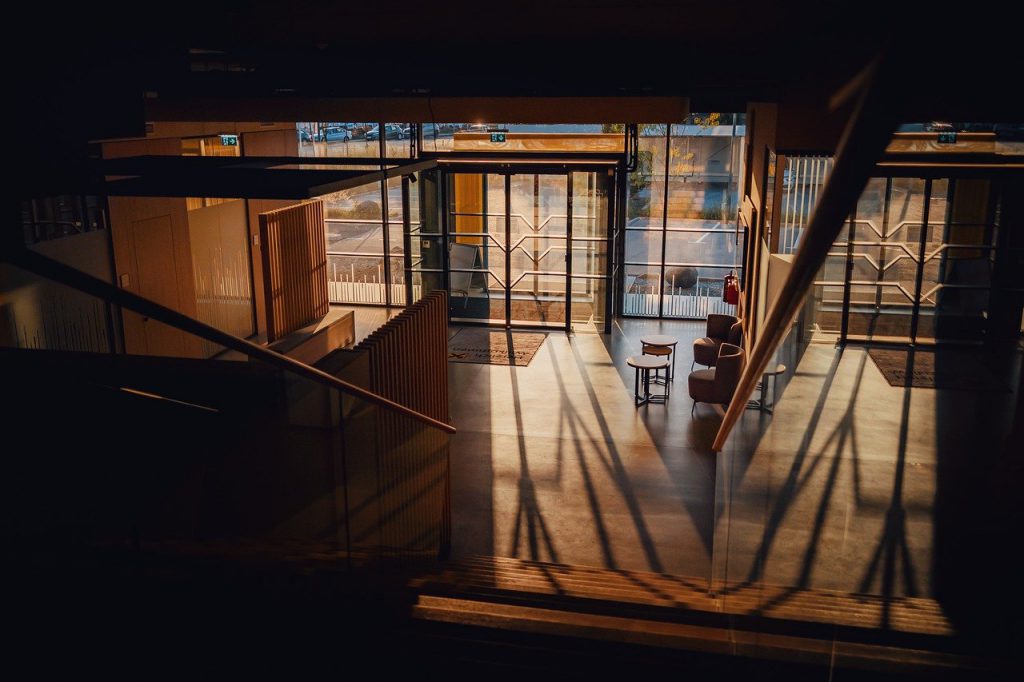Hotel Tips

30 Essential Safety Tips Hotels Need to Implement
Ensuring the safety of guests and staff is of utmost importance for hotels. Here are 30 safety tips for hotels:
- Emergency Evacuation Plans:
- Develop and regularly review emergency evacuation plans, ensuring clear exit routes and assembly points.
- Staff Training:
- Provide comprehensive training to staff on emergency procedures, first aid, and communication protocols.
- Surveillance Systems:
- Install and maintain a robust surveillance system in public areas, hallways, entrances, and parking lots.
- Well-lit Premises:
- Ensure well-lit parking lots, entrances, and other common areas to deter criminal activity.
- Secure Entry Points:
- Implement access controls and secure entry points to prevent unauthorized individuals from entering.
- Guest Verification:
- Verify the identity of guests during check-in, and use key card systems for secure room access.
- Luggage Inspection:
- Implement luggage inspection procedures to identify any suspicious items during check-in.
- Visible Security Personnel:
- Have visible security personnel on-site to deter potential threats and provide a sense of security.
- Fire Safety:
- Conduct regular fire drills, maintain fire extinguishers, and ensure smoke detectors are in working order.
- Emergency Contacts:
- Display emergency contact information in guest rooms and common areas.
- Secure Wi-Fi Networks:
- Protect Wi-Fi networks with strong passwords to prevent unauthorized access and data breaches.
- Secure Room Safes:
- Provide secure room safes for guests to store valuables.
- Regular Security Audits:
- Conduct regular security audits to identify vulnerabilities and address them promptly.
- Anti-Skimming Measures:
- Regularly inspect ATMs on the premises for skimming devices and educate guests about the risks.
- Guest Privacy:
- Respect guest privacy and avoid sharing personal information unless required by law.
- Health and Safety Protocols:
- Implement health and safety protocols, especially during public health crises, to protect guests and staff.
- Adequate Lighting in Hallways:
- Ensure hallways are well-lit to prevent accidents and deter potential criminal activity.
- Secure Parking Areas:
- Provide secure parking areas with controlled access and surveillance.
- Medical Assistance:
- Have a well-equipped first aid kit and staff trained in basic medical assistance.
- Child Safety Measures:
- Implement child safety measures, such as window guards and childproofing, in family-friendly areas.
- Regular Equipment Checks:
- Regularly inspect and maintain equipment such as elevators, escalators, and electrical systems.
- Crisis Communication Plan:
- Develop a crisis communication plan to inform guests and staff during emergencies.
- Proper Signage:
- Display clear signage for emergency exits, fire escapes, and important locations.
- Restricted Access to Staff Areas:
- Restrict access to staff-only areas to prevent unauthorized individuals from entering.
- Security Checks for Vendors:
- Conduct security checks for vendors and contractors entering the premises.
- Lost and Found Policy:
- Establish a clear lost and found policy to manage and return guests’ belongings.
- In-Room Safety Information:
- Provide safety information in guest rooms, including emergency exit routes.
- Guest Awareness Programs:
- Conduct awareness programs for guests, educating them about hotel safety measures.
- Collaboration with Local Authorities:
- Collaborate with local law enforcement and emergency services for a quick response during crises.
- Regular Staff Meetings:
- Hold regular staff meetings to discuss safety concerns, share updates, and address any issues promptly
Staff Writer
0
